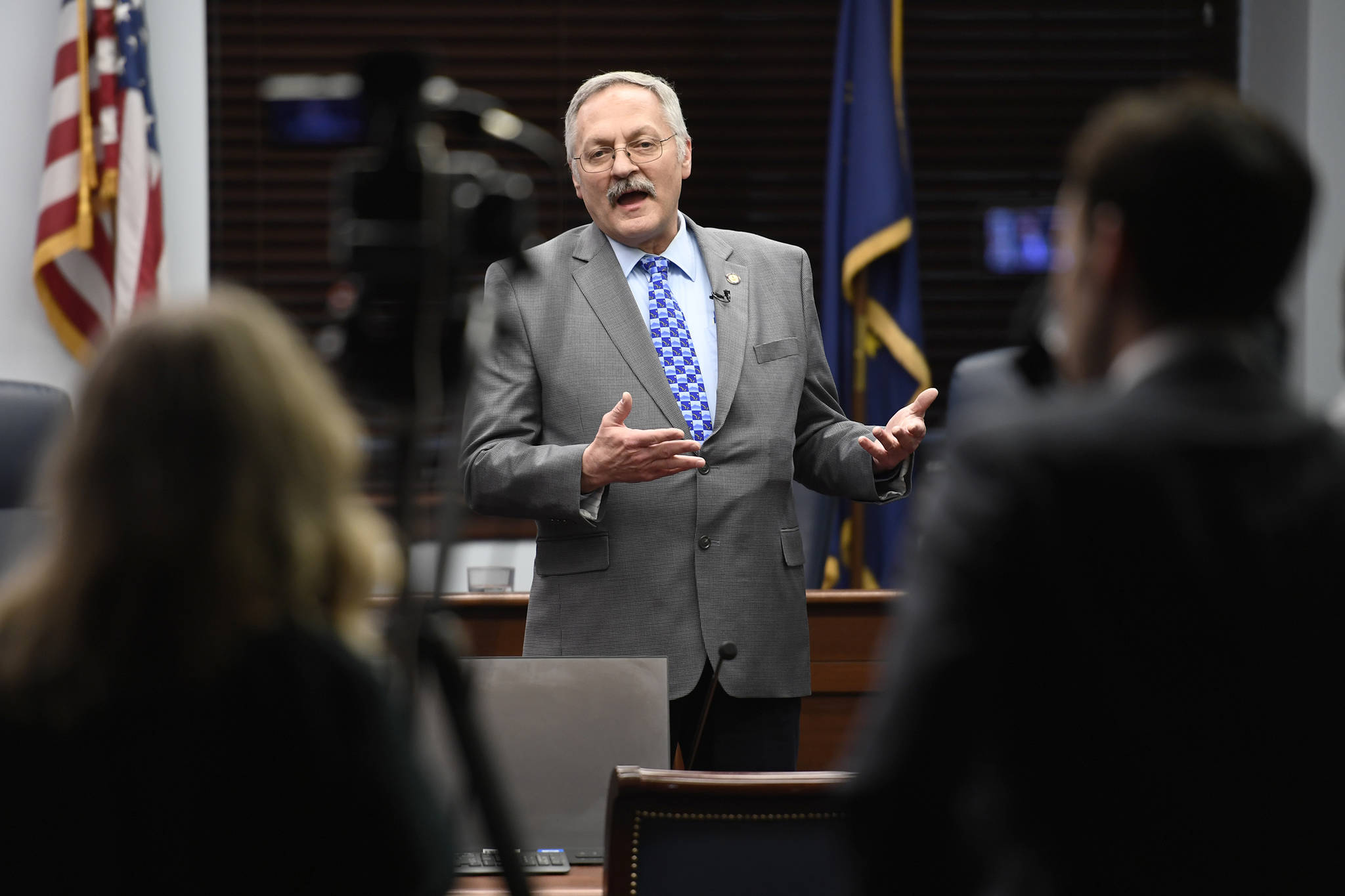House caucuses continue to vie for a majority, and aside from caucus leaders, most representatives are not speaking on the issue. The hallways at the Alaska State Capitol were mostly silent on Friday.
Friday marked the 11th day of the 31st Legislative Session. The House floor session ended without conducting business, though quite a few guests sitting the gallery were introduced.
A House majority must be formed in order to elect a permanent Speaker of the House, make committee assignments and conduct legislative business.
Rep. Bryce Edgmon, D-Dillingham, was leader of the mostly-Democrat House Majority Coalition during the 30th Legislative Session. He remains leader of the majority coalition caucus. He was not available for questions on Friday, but he did release a written statement Friday afternoon.
“Both sides in the House are continuing to work hard to form a majority organization so that immediate action can be taken on the governor’s budget when it is released on February 13,” the statement reads. “Given the expectation of major reductions, it is essential that we have a strong majority organization in place to make the difficult decisions facing Alaska. There have been and will continue to be active discussions until a majority is formed.”
[Tall promises, short details: Senate Democrats concerned about budget]
Rep. Dave Talerico, a Republican from Healy, was tagged by House Republicans to be speaker of the House shortly after the election. He held a press conference Friday afternoon in an attempt to assure Alaskans the House is still working toward a majority. He could not make an estimate on when a House majority would form, but it’s not likely to happen this weekend.
“The most important thing is we’re still having lots of conversations and talks,” Talerico said. “So we really are, people are working really hard so we can get to a solid organization so we can get started with business.”
Talerico said representatives are doing what they can to stay informed in the meantime. The House is now having unofficial informational meetings. This week, representatives had the chance to hear presentations on revenue and resource forecasting that were given to the Senate Finance Committee last week.
“We understand the passage of time that is slipping by and we want to make sure that once we get the organization together we can hit the ground running,” Talerico said.
Alaska statute requires the legislative session to end within 90 days. But this rule is usually ignored because the Alaska Constitution — the overriding authority — has a 120-day session limit. Even with precious time burning up, Talerico remains positive they can end the session in time.
When asked if he is worried important legislation might not be addressed due to a late start, Talerico said he is not worried. He’s going to focus on the budget, public safety and the Alaska Permanent Fund Dividend. He believes the House should be able to address those three priorities – which are also Gov. Mike Dunleavy’s – and avoid special sessions.
[Gov’s crime message resonates, but Juneau lawmakers hesitant about constitutional amendments]
There are 23 Republican in the House but only 20 are caucusing as Republicans. Republican Reps. Gabrielle LeDoux of Anchorage and Louise Stutes of Kodiak, were part of the House Majority Coalition last session. Rep. Gary Knopp, R-Kenai, has spoken about his desire to join a bipartisan coalition.
Rep. Dan Ortiz of Ketchikan is the only non-affiliated member of the House.
There are 16 Democrats.
“We have 23 Republicans in the House of Representatives, so myself, personally, I think we need to have a Republican speaker and Republican leadership,” Talerico said. “Others might disagree with that and I understand that opinion.”
The House is scheduled to convene at 10 a.m. Monday. Meanwhile, the clock is ticking.
• Contact reporter Kevin Baird at 523-2258 or kbaird@juneauempire.com. Follow him on Twitter at @alaska_kev.

